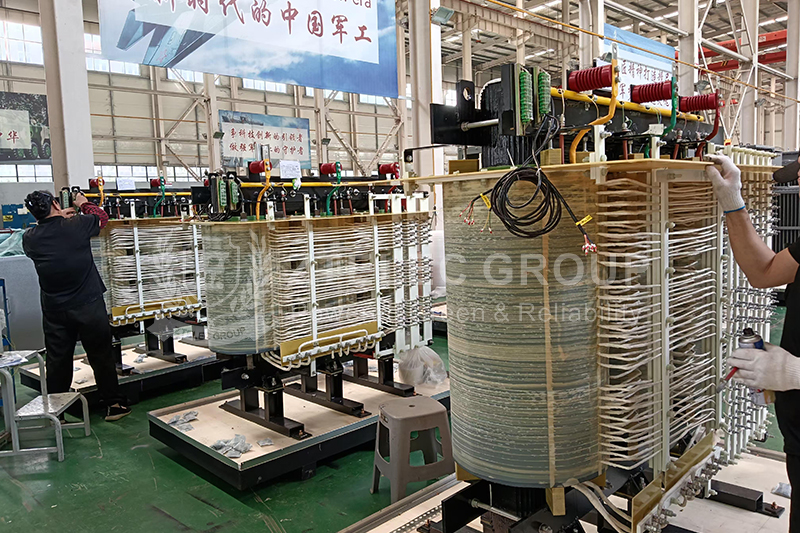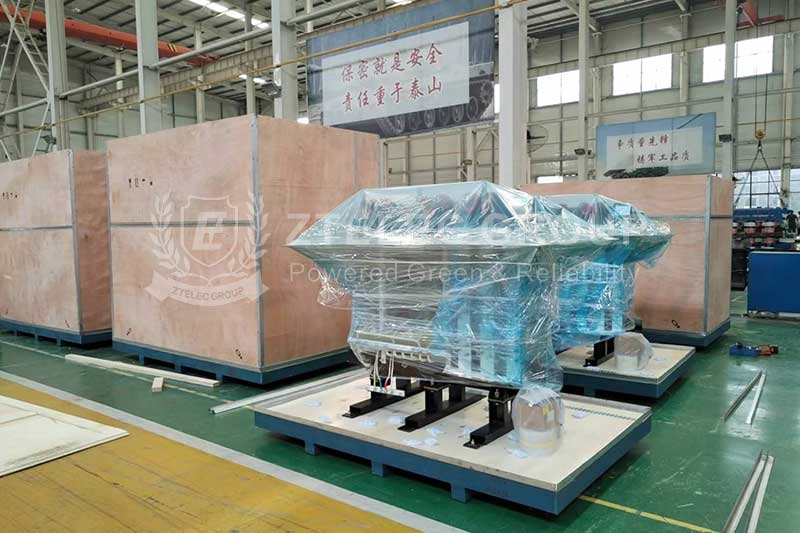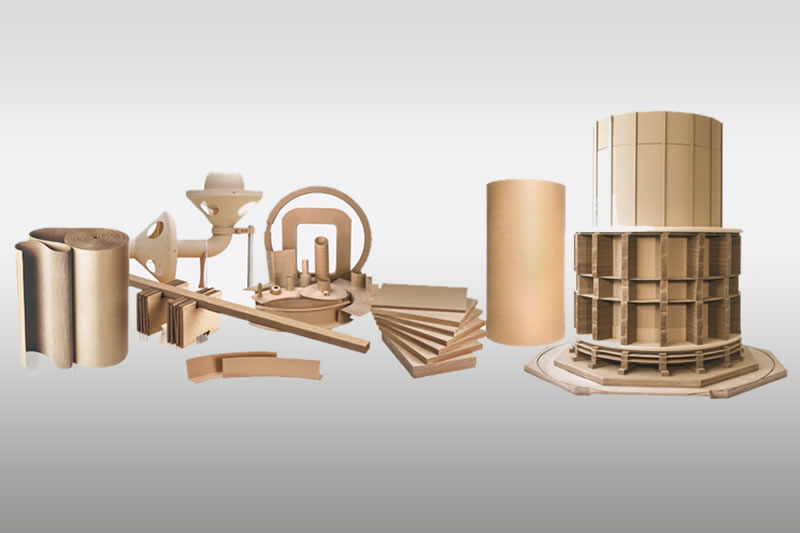Types of insulators and their applications
Insulator is a component of power equipment. Its main function is to keep the wire of the power line and the support or tower body insulated state, so as to prevent short circuit between the wire and the ground or other equipment. Insulators are usually made of insulation materials and special structures are used to maintain a certain gap and distance between the wire and the support, so as to achieve the purpose of insulation.
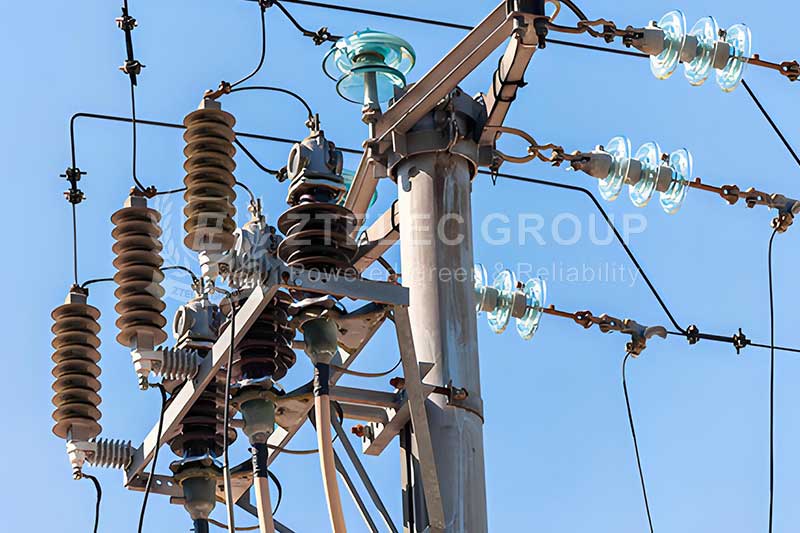
Types of insulators and their applications
1. Porcelain insulator
Porcelain insulators are one of the most commonly used insulators. It is mainly suitable for high-voltage lines and areas where the operating environment is heterogeneous and easy to pollute or strong electrical corrosion. Porcelain insulators can be divided into plug, disc, tensile, corrugated, string and other types. It is selected according to different uses and voltage levels.
2. Polymer insulator
Polymer insulator is a new type of insulator material. It is mainly based on organic polymer materials. It has good insulation properties, pollution resistance, electrical corrosion resistance and heat resistance. Polymer insulators are mainly suitable for low-voltage lines in urban areas, as well as places with serious pollution and strong electric corrosion environment.
3. Composite insulator
Composite insulators are assembled and pressurized from insulators of different materials. They mainly have the characteristics of good mechanical strength, uniform distribution of destructive electric field, good linear climb, etc. So they are suitable for high-grade, large-span, complex terrain and serious pollution power lines.
4. Fiberglass insulator
Fiberglass insulator is a new type of insulator material, which is mainly used in coastal lines, high humidity, strong pollution and rural power lines. It has the characteristics of good insulation performance, electrical corrosion resistance and strength.
The types of insulators are also different according to their use and voltage level. In addition to the above common insulators, there are DC pillow insulators, zirconia ceramic insulators, silicone rubber insulators and so on. Different types of insulators have different characteristics and advantages and disadvantages, so it is necessary to choose according to the actual situation when installing insulators.
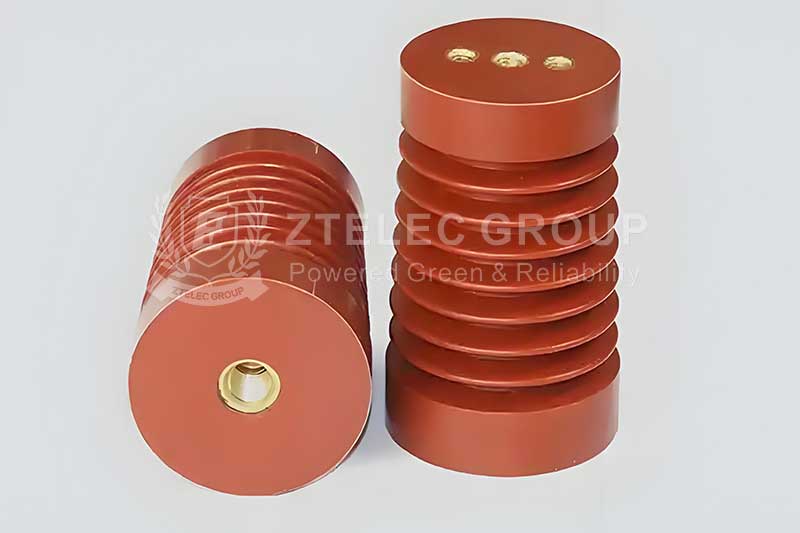
The function of the insulator
Insulators play a very important role in the power system. Its main function is to isolate conductive substances and metal materials, prevent electrical equipment from arc failure due to current overload, so as to ensure the normal operation of the power system. Specifically, the function of the insulator includes the following aspects:
1. Isolation of electrical conductors and equipment: Insulators can effectively isolate electrical conductors and equipment, so as to avoid damaging effects of current on metal materials inside the equipment.
2. Transmission of electrical signals: The insulator can effectively transmit electrical signals and is not affected by external interference, so as to ensure the accurate transmission of electrical signals.
3. Protect the safety of the equipment: When the equipment fails, the insulator can effectively isolate the fault signal to protect the safety of the equipment.
4. Prevent arc failure: Insulators can effectively prevent arc failure and avoid power system failure.
Insulator is an important part of power system, which can effectively isolate electrical conductors and equipment and prevent power system failure. In order to ensure the normal operation of the insulator, it is necessary to carry out regular testing and maintenance to ensure that its resistance is good, which can effectively resist the erosion of high voltage and arc.
- more+releated article
- 2025-12-13How to Select and Use Phenolic Cloth-base Lami
- 2025-12-13How Much Does Bakelite Sheet Cost? 2025 Price
- 2025-12-13Why are most 3240 epoxy boards yellow?
- 2025-12-13What are the Main Applications of FR4 Epoxy Bo
- 2025-12-13Why Does the Price of Insulating Paperboard Va
- 2025-12-13Heat-Resistant DDP Insulation Paper
- 2025-12-13Comparison of Heat-Resistant DDP Insulating Pa
- 2025-12-13G10 and FR4 Epoxy Boards: Commonly Used for Ge
- 2025-12-13The Price of Heat-Resistant DDP Insulation Pap
- 2025-12-13How to Choose Epoxy Laminate Materials for Gen

